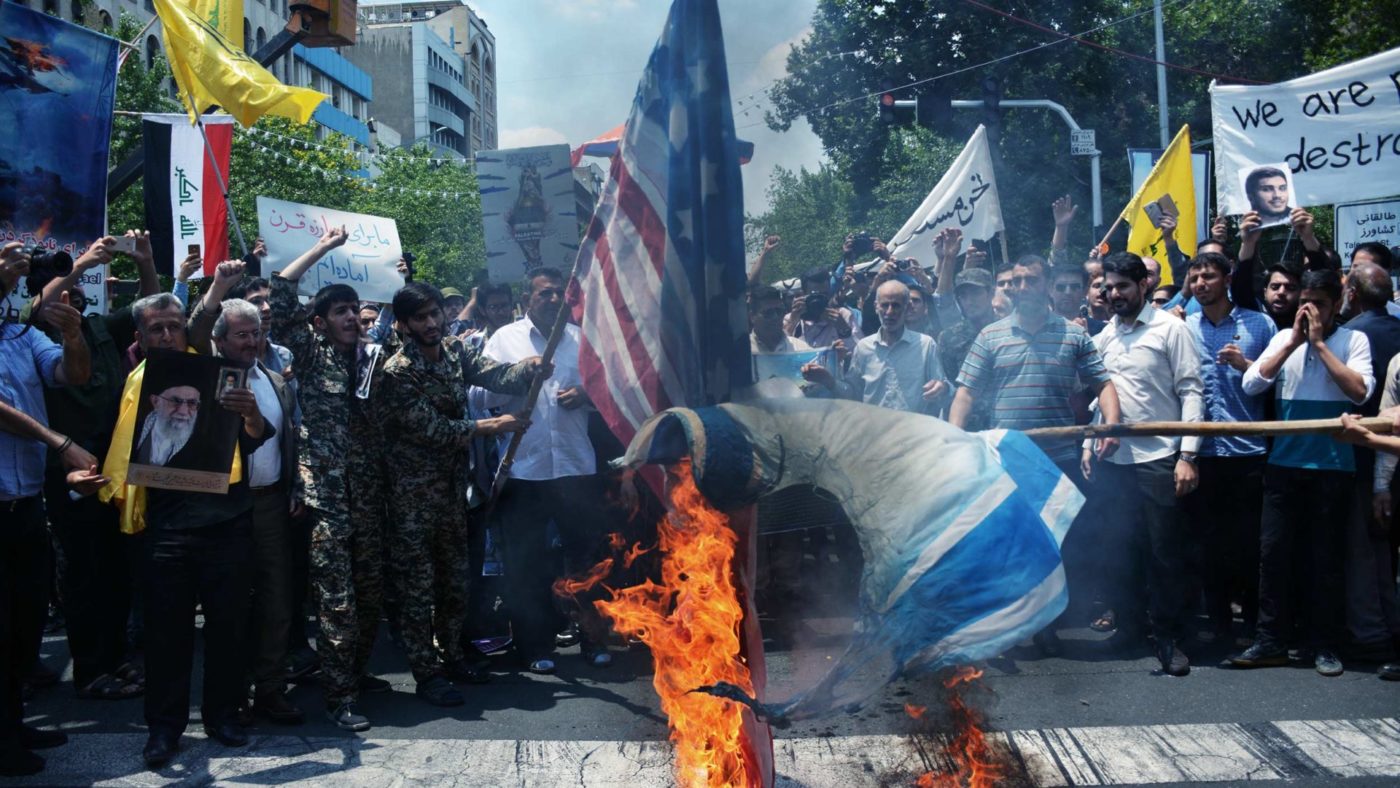In the space of barely six months, America and Iran could have two new Presidents. Of course, the obsessive focus across the globe has been the race for the White House, with both candidates appearing to offer starkly different approaches to this crucial issue (not that it’s been much discussed). As 2021 begins and the next US presidential term begins, attentions will turn to Tehran’s own presidential race. As with 2020, America and Iran will dominate the early year headlines (along with Covid, of course).
In President Trump, the Ayatollahs running their dystopian hard-line vision of Iran had met their match in terms of aggressive rhetoric. The ‘Great Satan’ has long been the Iranian characterisation of America, regardless of who is in charge. Just prior to US withdrawal from the JCPOA, Trump summed up the dramatic shift in stance on Iran by saying they would “pay a price like few countries have ever paid” should they threaten the United States. In the Trump White House, the Iranian government finally has an administration willing to bark back against their hateful rhetoric.
Two administrations in a row have seen Iran define their foreign policy legacy. Obama’s second term was, in many respects, defined by the multi-party JCPOA agreement, signalling the start of normalisation between the two countries. This was despite vocal opposition from the Gulf States and Israel, whose protests about increased funds for Iranian proxies and their missile programme largely fell on deaf ears. This was part of a wider pattern which saw the Obama administration drift aware from traditional American allies and towards Islamists such as the Muslim Brotherhood.
There has been a hard reverse under Trump, with the self-same allies pulled back into the White House’s embrace. Withdrawal from the JCPOA was in large part down to their regrasping of the presidential ear. That deal, despite the lingering protestations of Europe’s leading powers, is dead. What comes next is currently seen as being determined by the next President of the United States, however, the fight to replaced President Rouhani in June next year is just as important.
Through his nearly eight years in office, President Rouhani has been mistakenly portrayed as a moderate. Despite his supposed reformer credentials, arms to violent proxies in Hezbollah, Hamas and the Houthis have continued to flow unabated, domestic protests with brutal reprisals have erupted on numerous occasions and Iran’s proxy network of dis-informers and destabilisers is stronger than ever. Until his assassination at the start of the year, Qassem Soleimani appeared not to have gotten the memo that a ‘reformer’ president was in charge.
The collapse of the JCPOA has given Iranian hardliners renewed confidence and vigour in their pursuit of recapturing the presidency. These figures have no interest in returning Iran to the community of responsible nations, appearing instead to be hellbent on further alienating it from the international stage. If he wins, Joe Biden should be careful what he wishes for: if he thinks he can renegotiate a deal with Iran for an early foreign policy win, he would do well to heed the advice of American allies in the region first.
It is currently the prevailing view that a Biden victory will see a smoother path towards JCPOA 2.0. The argument goes that closer relations with European allies and foreign policy advisors comprised almost exclusively of Obama-era appointees will unlock the Iran-shaped door Trump shut.
But this overlooks the almost certain hard-line takeover of the Iranian presidency due in June. Having campaigned on the futile failure of the JCPOA, a stick used to beat Rouhani with internally, they won’t be keen to turn around and make a deal with the ‘Great Satan’ as one of their first acts.
A potential President Biden would therefore be well-advised to recognise the threat posed by a more belligerent Iran – and avoid the costly Obama-era failure to recognise the danger of its extreme Islamist ideology.
Click here to subscribe to our daily briefing – the best pieces from CapX and across the web.
CapX depends on the generosity of its readers. If you value what we do, please consider making a donation.


